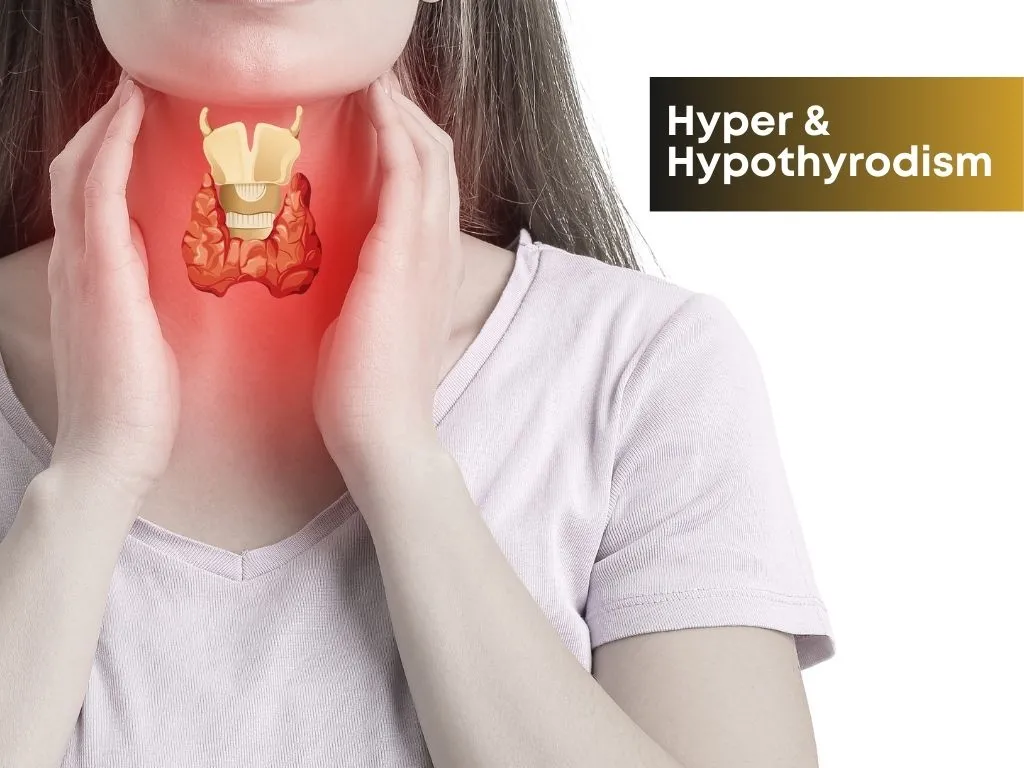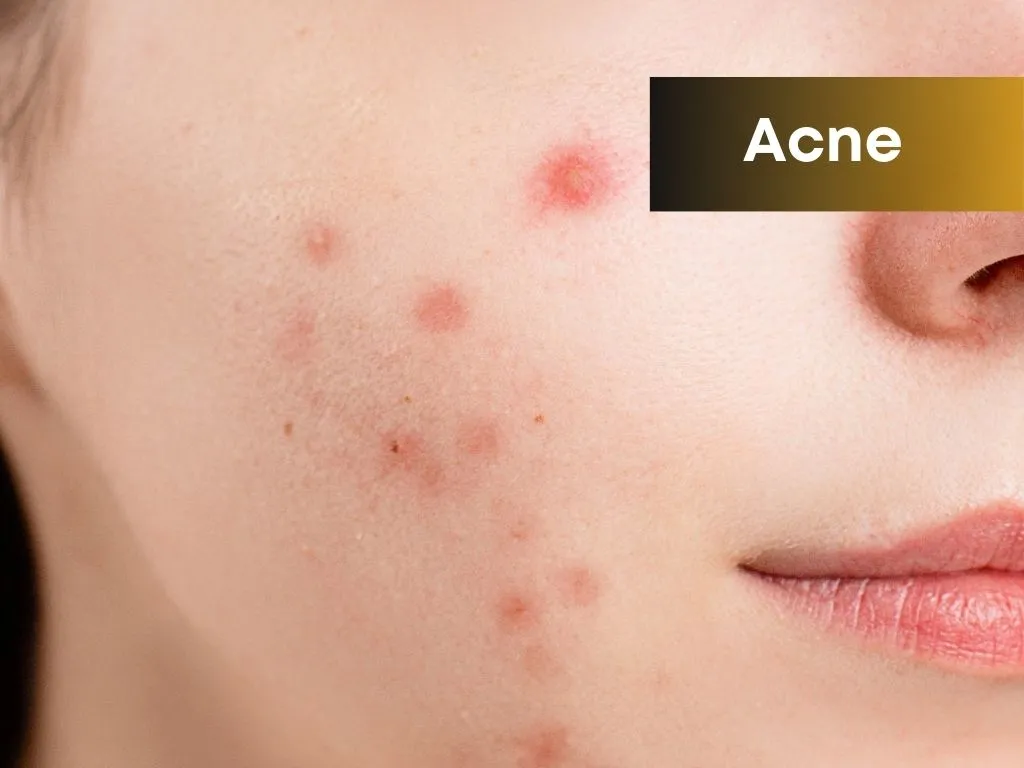Overview
Hyperthyroidism and hypothyroidism are both conditions that affect the thyroid gland, a small butterfly-shaped gland located in the front of the neck, below the Adam's apple.
The thyroid gland produces hormones that regulate metabolism, energy levels, body temperature, and other vital functions in the body.
HyperthyroidismHypothyroidism
Causes
Causes of Hyperthyroidism:
Graves' DiseaseThyroid NodulesThyroiditisExcessive Iodine IntakeExcessive Thyroid Hormone Replacement Therapy
Causes of Hypothyroidism:
Hashimoto's ThyroiditisThyroid SurgeryCongenital Hypothyroidism
Symptoms
Symptoms of hyperthyroidism may include:
Rapid heartbeat (tachycardia)Increased appetiteWeight lossNervousness or anxietyTremorsSweatingDifficulty sleepingChanges in menstrual patterns.
Symptoms of hypothyroidism may include:
FatigueWeight gainCold intoleranceDry skin and hairHair lossMuscle weaknessJoint painDepressionMemory problemsMenstrual irregularities
Treatment: Modern Medicine
Hyperthyroidism:
MedicationsRadioactive Iodine Therapy (RAIThyroidectomy:
Hypothyroidism:
Thyroid Hormone Replacement Therapy
Treatment: Traditional Medicine
For Hyperthyroidism:
Herbal RemediesDietary Changes
For Hypothyroidism:
Iodine-Rich FoodsSelenium SupplementationCoconut Oil
Caution
Cardiovascular ComplicationsMental Health ConcernsReproductive IssuesBone HealthThyroid Storm (Hyperthyroidism)Myxedema Coma (Hypothyroidism)Autoimmune ComplicationsMedication Side Effects
Prevention
Maintain a Healthy Diet:
Ensure adequate intake of iodine-rich foods, such as iodized salt, seafood, dairy products, and eggs, to support thyroid hormone production.Consume a balanced diet rich in fruits, vegetables, whole grains, lean proteins, and healthy fats to provide essential nutrients for overall health and thyroid function.
Avoid Environmental Toxins:
Minimize exposure to environmental toxins and pollutants, including cigarette smoke, heavy metals, pesticides, and industrial chemicals.Use household and personal care products that are free of harmful chemicals whenever possible.
Monitor Thyroid Function:
Be aware of the signs and symptoms of thyroid disorders.Schedule regular check-ups with a healthcare provider and discuss any concerns or symptoms related to thyroid health.Follow through with recommended screenings and blood tests to monitor thyroid hormone levels and detect abnormalities early.
 Nalamaree Team
Nalamaree Team





















.jpg.webp)
